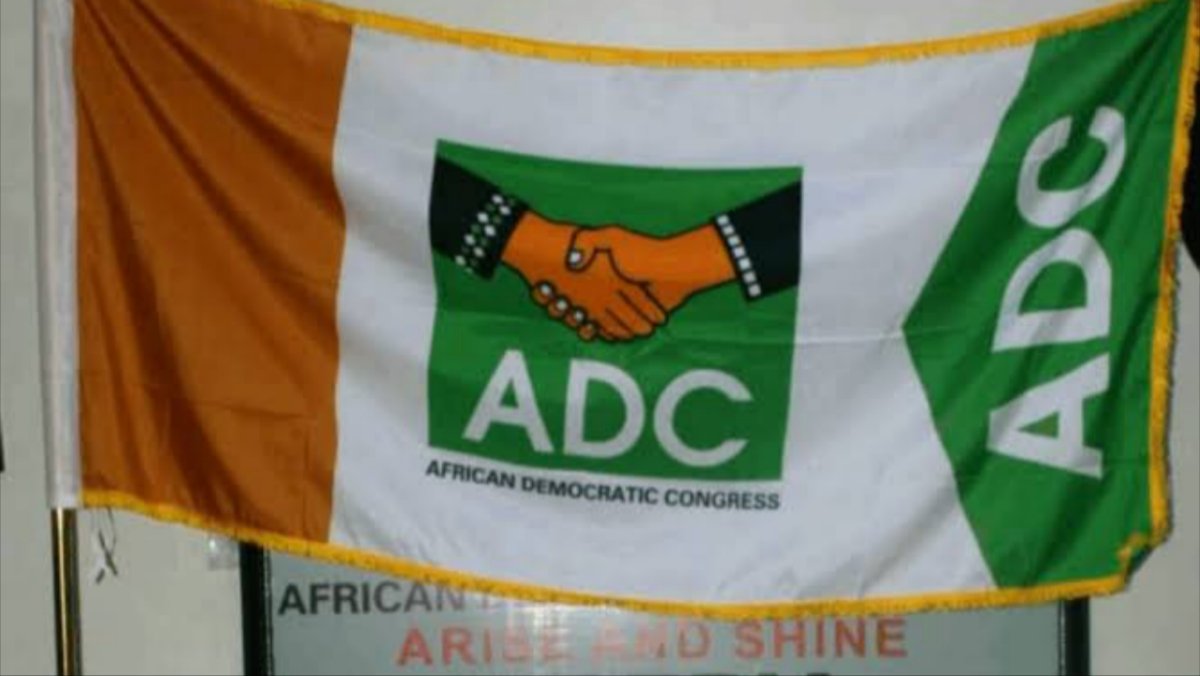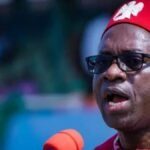The African Democratic Congress (ADC), recently adopted by a coalition of opposition leaders as a platform to challenge the All Progressives Congress (APC) in 2027, failed to make an impact in its first electoral test during weekend by-elections across 13 states and 16 constituencies.
Elections were held in nine state constituencies in Adamawa, Anambra, Kaduna (2), Kano, Kogi, Niger, Taraba, and Zamfara States, as well as five federal constituencies in Edo, Jigawa, Kaduna, Ogun, and Oyo States.
The elections, which were conducted to fill open seats in the National and State Assemblies, saw the APC win resoundingly, taking 12 of the contested seats.
The All Progressives Grand Alliance (APGA) won two, the New Nigeria Peoples Party (NNPP) kept one, and the PDP only managed one victory. Neither the ADC nor the Labour Party (LP) secured a single seat.
ADC leaders had run a vigorous campaign in Ogun State, where the party’s dismal performance was most noticeable. It received just 289 votes in Ikenne LGA, while the APC and PDP received 41,237 and 14,324, respectively.
In Remo North, the ADC received just 37 votes, the PDP received 992, and the APC received 8,052. APC had 22,958, PDP 7,737, and ADC 179 in Sagamu LGA, which showed similar results.
The atmosphere surrounding the election was not without controversy.
During the exercise, two INEC officials in Ogun were taken into custody while in possession of N2.5 million. The APC demanded cancellations in the impacted areas and accused thugs in Kano of interfering with the voting process.
In Kaduna, security personnel also seized N25 million from PDP members; however, the party maintained that the money was intended for logistical purposes rather than vote-buying.
In Onitsha North, Anambra, APGA defeated ADC and LP in a significant win that Governor Chukwuma Soludo called a “decisive rejection of the new coalition.” “The signal we sent was that both ADC and LP are dead in Anambra,” he said, making fun of the opposition alliance.
With Nentawe Yilwatda as its new national chairman, the result solidifies the APC’s hold on power ahead of the 2027 elections.
However, since the PDP has only won once, in Oyo State, the outcome raises doubts about its capacity to make a significant comeback. The NNPP’s continued existence in Kano maintained the northwest’s competitiveness, while APGA further expanded its regional clout in Anambra.
The ADC rejected the findings, claiming they did not accurately represent its capabilities. In addition to accusing the party of widespread violence, vote-buying, and irregularities, National Publicity Secretary Bolaji Abdullahi contended that the party had not put up candidates in the majority of constituencies.
The party said: “The ADC noted that the party did not field candidates for most of the positions contested in the by-election.
“Therefore, with all its flaws and irregularities, this election should not be seen as a measure of the strength or capacity of the opposition coalition, but rather as a sad reflection of how far the system has been corrupted against the will of the people.
“What Nigerians witnessed in the by-elections is yet another reminder that under the current administration, democracy itself, just like the economy and our national security, continues to decline under President Bola Ahmed Tinubu and the APC.
“When elections are marred by widespread violence, when ballots are openly and brazenly exchanged for money, when opposition candidates are excluded without explanation, and when the very institutions entrusted to safeguard democracy become complicit, then the vote of the ordinary Nigerian ceases to have meaning.
“In some states, nearly 300 thugs armed with rifles, knives, and cutlasses were arrested on election day. Is this democracy—or banditry disguised as voting?”
Although the elections had a narrow focus, observers point out that they provide a preliminary look at political alignments before 2027.
As parties get ready for the next general election, analysts predict that the results may lead to new coalitions, defections, and reevaluations of campaign tactics.







